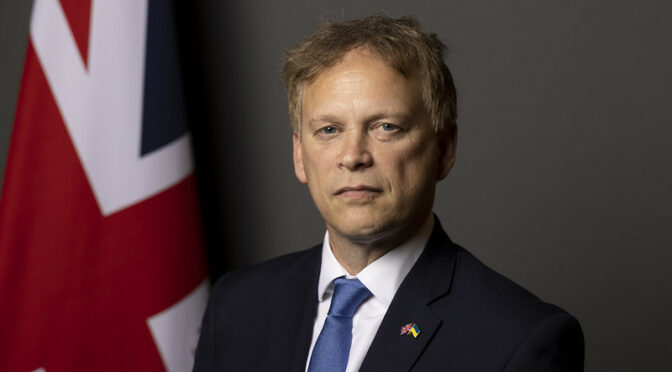Article published in The Daily Express, 24 April 2024. © Richard Kemp
Grant Shapps has achieved something no Defence Secretary has managed since the end of the Cold War, a historic increase in defence spending to 2.5% of GDP.
Many will argue that, given the increasingly dangerous world, even this is not enough. But realists understand that, with so many demands on the public purse, it was the best that could reasonably have been hoped for.
It is particularly striking at this range from a general election, with defence never traditionally seen as a vote winner in peace time.
Some will complain that part of the increased budget will be spent on support for Ukraine. But helping defend Ukraine is also helping defend the UK, by enabling Kyiv to fight against a despot that, as part of the Russia-China-Iran axis, threatens the whole of the Western world.
After decades of hollowing-out by successive governments, our armed forces are in dire need of this uplift. We have a wide range of military capabilities, many highly sophisticated, but in almost every category, we simply don’t have enough – not enough tanks, artillery, planes, ships, missiles.
A key focus should be on expanding existing forces as well as developing new weapons. Recent defence thinking has leaned towards technology over hard fighting power. That was always mistaken, and has been demonstrated recently by the World War 2 style battles in Afghanistan and bitter street by street warfare in Gaza.
The truth is you need both, and that is very expensive.
We also don’t have enough manpower to fly our planes or crew our ships, while the Army has been leaching its soldiers and is unable to recruit enough replacements.
Some of the money needs to be spent on better pay and improved conditions for our troops.
The Prime Minister says he is putting defence industry on a war footing, creating deeper munitions stockpiling and creating surge capacity.
That is critical, as is the promised reform to military procurement. The latter has been promised by every government I can remember and yet procurement remains ossified.
Britain is already the second largest contributor to Nato. This will hopefully set an example to some of our more economically tight-fisted allies to follow suit, thus enhancing our collective defences.
Image: Flickr/No 10

